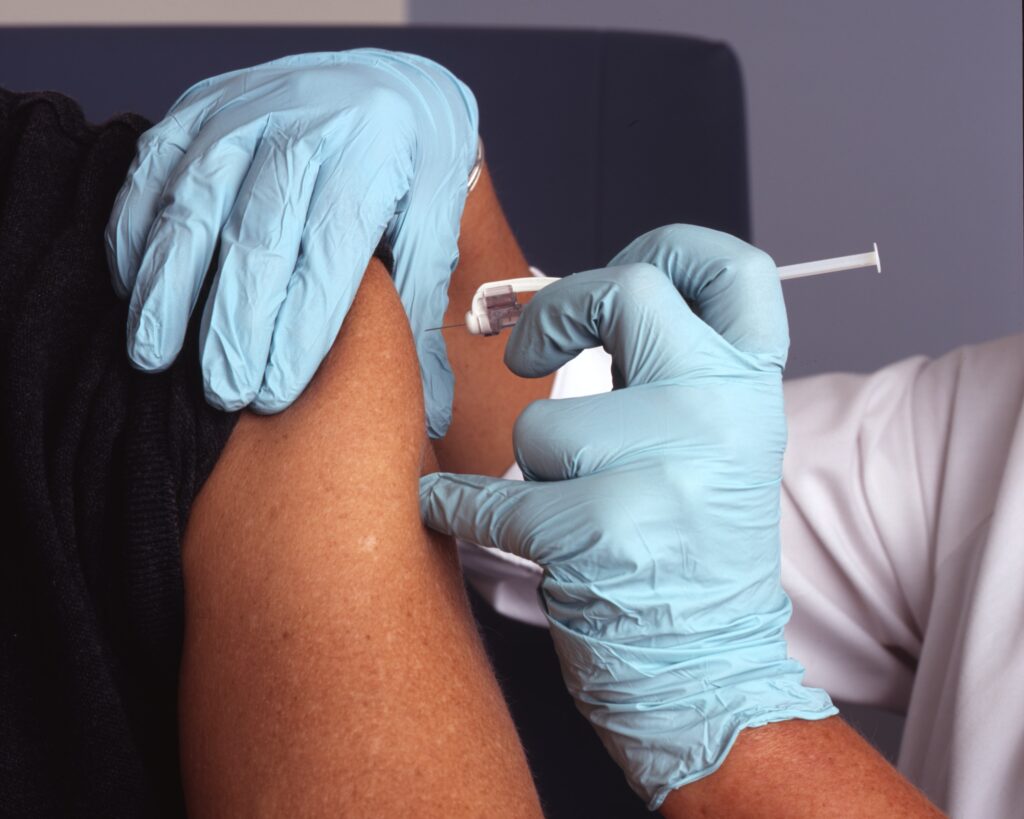Thousands of immunosuppressed people, including patients at Oxford University Hospitals (OUH), have the chance to take part in a landmark new study investigating which people are still at the greatest risk of COVID-19 infection after vaccination.

Researchers hope the STRAVINSKY study’s findings will provide everyone from clinicians and policymakers to patients and the general public with detailed, up-to-date information on the impact of booster vaccinations.
Professor Eleanor Barnes, of the University of Oxford’s Nuffield Department of Medicine, is leading the Oxford part of the study. She said: “We know that COVID-19 infections disproportionately affect those with weakened immune systems. While most of the population seems to have moved on from the pandemic, many of these patients are still shielding.
“STRAVINSKY aims to help us identify which individuals and patient groups are most clinically vulnerable to COVID-19 infection. We hope that, at the end of the study, our findings will inform future guidance for immunocompromised patients – we want to be able to reassure those who fear they are at high risk from COVID-19 but may not be; and to pinpoint those who remain extremely vulnerable to the virus.”
The two-year study has received 2.8m in funding from the National Institute for Health and Care Research (NIHR). Oxford is one of four main centres for the study, the others being Birmingham, Southampton and Imperial.

The STRAVINSKY study (Stratification of Clinically Vulnerable People for COVID-19 Risk using Antibody Testing) will recruit 3,000 immunocompromised patients; 2,600 will receive finger-prick antibody tests, whilst the remaining 400 get more comprehensive immune analyses.
Oxford researchers, who are supported by the NIHR Oxford Biomedical Research Centre, have already been involved in similar national clinical trials: The OCTAVE study found that a significant proportion of immunocompromised patients mount a low or undetectable immune response after two doses of the same COVID-19 vaccine. OCTAVE DUO has been investigating whether a third dose will improve this immune response.
Meanwhile, the PITCH study has been looking at how the immune system responds to the COVID-19 virus in healthcare workers. The data from this study will serve as a control in the STRAVINSKY study.
There are two main elements to the STRAVINSKY study: a retrospective analysis of all the UK studies that have already been carried out in this area, so that it can be better understood who is still at risk; and a prospective study – led by Oxford and Southampton – where patients are followed over the next two years and their response to the new bivalent vaccines will be investigated.
Professor Barnes said: “We’re delighted to be able to employ Oxford’s expertise in T cell and antibody analysis and serology to help these vulnerable patients as part of the STRAVINSKY study, just as we have done in the OCTAVE and PITCH studies.”
“We will be looking specifically at whether we can use antibody testing and T cell responses to inform clinical risk, so that patients know if they are still at risk or not. We hope that, at the end of the study, our findings will inform future guidance for immunocompromised patients.
In previous studies, Oxford researchers have focused on patients with liver, inflammatory bowel disease and stem cell transplants. As part of the STRAVINSKY study they are interested in recruiting patients from 22 different groups, including: chronic lymphoproliferative disorders, plasma cell disorders, myelodysplastic syndrome or myeloproliferative neoplasm, common variable immunodeficiency and secondary antibody deficiency.
Additional treatment-related groups include any patient who has previously received a solid organ transplant, or haemopoietic stem cell transplant within the last year, and those receiving B-cell depleting treatment, chemotherapy, radiotherapy or immunosuppressive medication (for autoimmune disease or cancer) within the last 26 weeks.
The trial extends to people with conditions that do not require immunosuppressive drugs but are known to be at risk of severe COVID-19 including sickle cell disease, thalassaemia or other rare inherited anaemias, lung cancer, cardiac failure, chronic obstructive pulmonary disease (COPD), diabetes mellitus, chronic kidney disease (CKD) stage 4-5, cirrhosis, HIV, neurological diseases (Parkinson’s and multiple sclerosis) and Down’s syndrome.
Those interested in taking part should contact Stravinsky@ouh.nhs.uk.
NIHR Chief Executive and Chief Scientific Advisor for the Department of Health and Social Care Professor Lucy Chappell said: “This study will help to understand how different patient groups with weakened immune systems respond to COVID-19, including new variants, and to vaccination.
“We hope that it will inform development of more specific advice and help people understand their own levels of risk, based on better information from antibody levels.”
The UK Health Security Agency’s Head of Immunisation, Dr Mary Ramsay, added: “Studies of COVID-19 immunity have been vital in helping us to understand how best to use vaccination in this vulnerable population, alongside real-world evidence on protection. We look forward to seeing the results of this antibody testing study.
“Vaccines remain the best way to protect yourself against serious infections, including COVID-19, and those eligible are urged to accept all the vaccines and boosters they are recommended – including the families of people with weakened immune systems.”